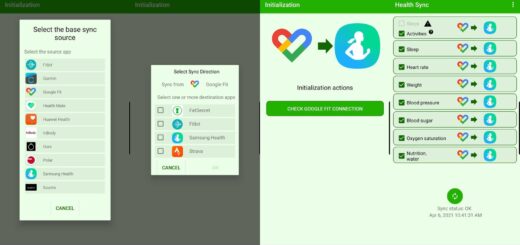Starting Your Digital Marketing Agency Guide
In 2024, an estimated 661.58 billion U.S. dollars will be spent on digital advertising worldwide. Companies are increasingly seeking the expertise of digital marketing agencies to help them navigate the online landscape and reach their target audience effectively. In this guide, I will provide a step-by-step approach to starting your own digital marketing agency and setting yourself up for success in this growing industry.
Key Takeaways:
- Starting a digital marketing agency requires careful planning and strategizing.
- Understanding the industry and market demand is essential before launching your agency.
- Choosing the right services and pricing models can help attract clients and ensure profitability.
- Defining your niche and targeting the right clients can differentiate your agency from competitors.
- Continuous learning and adaptation to industry trends are crucial for long-term success.
What Is a Digital Marketing Agency?
A digital marketing agency is a company that specializes in helping businesses establish and expand their online presence. Through various online marketing channels such as websites, blogs, social media, email, and even television, these agencies employ strategic techniques to reach and engage a wider customer base. By crafting creative and targeted advertising campaigns, digital marketing agencies aim to drive traffic, increase sales, and foster brand loyalty.
Digital marketing agencies offer a comprehensive range of services that cater to the specific needs of businesses in the digital landscape. These services include:
- Search Engine Optimization (SEO): Improving website visibility in search engine results.
- Social Media Management: Planning and executing social media strategies across various platforms.
- Pay-Per-Click Advertising (PPC): Creating and managing paid advertising campaigns to generate leads.
- Email Marketing: Designing and executing targeted email campaigns to nurture customer relationships.
- Influencer Marketing: Collaborating with influential individuals to promote brands and products.
- Content Marketing: Creating and distributing valuable content to attract and engage audiences.
- Website Design: Developing visually appealing and user-friendly websites to enhance the user experience.
A digital marketing agency acts as a strategic partner to businesses, guiding them through the complex world of online marketing. By leveraging the power of digital platforms and employing effective marketing strategies, these agencies empower businesses to connect with their target audience, generate leads, and achieve their marketing goals.
Types of Digital Marketing Agencies
In the ever-evolving world of digital marketing, businesses have diverse needs and preferences that require tailored services. Different types of digital marketing agencies have emerged to meet these specific requirements. Let’s explore three key types of agencies: full-service, single-channel, and multi-channel.
Full-Service Digital Agency
A full-service digital agency offers a comprehensive range of services to help businesses establish a strong online presence and drive results. These agencies provide expertise in various areas, including web development, search engine optimization (SEO), social media management, and advertising campaigns. By leveraging their diverse skill sets, full-service agencies can deliver integrated marketing strategies that align with a company’s overall goals.
Single-Channel Agency
As the name suggests, a single-channel agency specializes in one specific area of digital marketing. This focused approach allows them to develop in-depth knowledge and expertise in a particular channel, such as SEO, social media marketing, or pay-per-click advertising. Single-channel agencies excel in delivering targeted and effective campaigns within their specialized domain.
Multi-Channel Agency
A multi-channel agency takes a holistic approach to digital marketing by combining multiple channels to create a cohesive and integrated strategy. These agencies leverage a blend of complementary marketing channels such as SEO, social media, email marketing, content marketing, and more to provide a comprehensive solution. By utilizing various channels, multi-channel agencies can reach a broader audience and optimize marketing efforts across different platforms.
Each type of agency offers distinct advantages based on the specific needs of businesses. Deciding which type of agency to partner with depends on factors such as the scope of your marketing goals, budget, and the level of expertise required. It is essential to choose an agency that aligns with your business objectives and possesses the skill set necessary to drive success in the digital landscape.
Now that we’ve explored the different types of digital marketing agencies, let’s delve deeper into the advantages of starting a digital marketing agency and why it is a promising business venture.
Is a Digital Marketing Agency a Good Business to Start?
Starting a digital marketing agency is indeed a promising business venture. The growth of the online market, accelerated by the pandemic, has created a high demand for digital marketing services. With more people spending time online and businesses shifting their marketing strategies accordingly, there is a significant opportunity to capitalize on this trend. Whether you have prior experience in marketing or are a newbie to the industry, starting a digital marketing agency can be a lucrative opportunity.
There are several advantages to starting a digital marketing agency business in today’s landscape. Firstly, the pandemic has accelerated the digital transformation of businesses, making digital marketing more essential than ever before. As companies strive to reach their target audience online and adapt to the changing consumer behavior, the demand for digital marketing services has skyrocketed.
Furthermore, the potential customer base for digital marketing agencies is vast. Businesses of all sizes and industries require digital marketing expertise to establish their online presence, drive website traffic, generate leads, and increase sales. From startups to established corporations, there is no shortage of potential customers seeking the services of a digital marketing agency.
Additionally, the advantages of starting a digital marketing agency extend beyond the current demand. The digital marketing industry is continuously evolving, presenting opportunities for ongoing learning, growth, and innovation. As technology advances and consumer behavior changes, digital marketing agencies must adapt to stay ahead of the curve. This constant evolution ensures that the industry remains dynamic and offers exciting prospects for aspiring entrepreneurs.
In conclusion, starting a digital marketing agency business in the current landscape can be a lucrative and rewarding venture. The pandemic has accelerated the demand for digital marketing services, providing a significant opportunity for success. With the potential customer base and continuous industry growth, aspiring entrepreneurs can establish themselves in the digital marketing industry and thrive in the ever-changing online landscape.
Questions to Ask Before Starting a Digital Marketing Agency
Before diving into the world of running a digital marketing agency, it’s essential to ask yourself a few questions. Is there sufficient demand for the services you plan to offer? Can you produce measurable results for your clients? Are you prepared to build and manage a team? Do you feel committed enough to handle the challenges and uncertainties that come with running a business? What do you want to achieve with your agency?
Answering these questions honestly and thoughtfully will help you assess the viability and feasibility of starting a digital marketing agency. Evaluating the demand for your services ensures that there is a market for what you plan to offer, providing a solid foundation for your business. The ability to produce measurable results for your clients is crucial to building a reputation and attracting future clients.
Building and managing a team is an essential aspect of scaling your agency and meeting the demands of your clients. Consider your skills and expertise and assess the talent pool available to you to determine if you can assemble a team that can deliver quality work. Moreover, running a business requires a high level of commitment. It involves long hours, dedication, and the willingness to take risks. Ensure you have the passion and drive to sustain and grow your agency.
Finally, having a clear agency vision is vital for long-term success. Define your goals, both short-term and long-term, and establish a vision that aligns with your values and aspirations. This vision will guide your decision-making and shape the direction of your agency.

The Digital Agency Business Model
Choosing the right pricing model is crucial for the success of your digital marketing agency. The most common pricing models include retainers, project-based pricing, and hourly rates. Each model has its advantages and considerations, allowing you to find the best fit for your agency’s goals and client expectations.
Retainers
A retainer pricing model involves clients paying a fixed monthly fee for ongoing services. This model provides stability and predictable revenue for your agency, as clients commit to a long-term engagement. With a retainer, clients have access to your agency’s expertise and support on an ongoing basis. It’s an ideal option for clients who require continuous digital marketing services and value a dedicated partner to drive their online success.
Project-Based Pricing
Project-based pricing is when clients are charged a specific amount for each project you undertake. This model allows your agency to tailor pricing to the specific scope and requirements of each project, ensuring fairness and transparency. It’s a suitable option for clients who prefer one-time or periodic marketing initiatives, such as website redesigns, ad campaigns, or content creation. Project-based pricing allows you to demonstrate the value of your services for specific deliverables.
Hourly Rates
The hourly rate model involves billing clients based on the number of hours worked on their projects or accounts. This model provides flexibility for clients who require ad-hoc or sporadic digital marketing support. Hourly rates can be useful when working with clients who have fluctuating needs or who require occasional consulting or troubleshooting services. However, it’s important to clearly communicate your rates and track and report the hours spent to maintain transparency and trust with your clients.
When deciding on your agency’s pricing model, consider the nature of your services, client expectations, and your agency’s capacity to deliver value. It’s also essential to have a clear agreement outlining the scope of work, payment terms, and any additional fees or charges.
Now that we’ve covered the different agency pricing models, let’s explore the various types of marketing agencies in the next section.
Pick a Type of Marketing Agency
Before delving into the specifics of starting a digital marketing agency, you need to decide on the type of agency you want to establish. There are various types to choose from, including:
- SEO agencies: Specialize in optimizing websites for search engines to improve organic visibility and drive targeted traffic.
- Content marketing agencies: Focused on creating and promoting engaging content to attract and retain customers.
- PPC agencies: Manage paid advertising campaigns across platforms like Google Ads, delivering immediate visibility and results.
- Social media marketing agencies: Handle social media content creation and advertising to build brand awareness and engage with target audiences.
- Email marketing agencies: Design and execute effective email campaigns to connect with subscribers and drive conversions.
- Influencer marketing agencies: Facilitate collaborations with social media influencers to leverage their audience and promote products or services.
- General digital marketing agencies: Offer a wide range of services, combining elements from various channels to deliver comprehensive marketing strategies.
When selecting the type of agency, it’s crucial to consider your expertise, interests, and the needs of your target market. Choosing a specialization can help you differentiate yourself in the market and cater to specific client needs.
Choose a Niche
Selecting a niche is a crucial step in positioning your digital marketing agency for success. By specializing in a specific industry or market segment, you can differentiate yourself from competitors and focus your efforts on a specific target audience. To identify a profitable niche, consider your own strengths and interests, analyze market demand, research competitors, and engage with potential clients in your target market. By narrowing your focus, you can gain traction in the early stages and establish your agency’s expertise in a specific area.
- Market Demand: Research the market to identify industries or segments with high demand for specialized marketing services.
- Profitable Niche: Evaluate the profitability of potential niches based on factors such as competition, market size, and growth potential.
- Target Market Research: Conduct thorough research on your target market, including their needs, pain points, and preferences.
By selecting a niche with high market demand and minimal competition, you can position your agency as a specialized service provider and attract clients who value your expertise.
Example of Market Demand Analysis:
| Industry | Market Demand | Competition Level |
|---|---|---|
| Health and Fitness | High | Medium |
| Real Estate | Medium | High |
| Technology Startups | High | Low |
| E-commerce | High | High |
Based on the analysis above, a niche in the health and fitness industry or the technology startup sector may present profitable opportunities with high market demand and moderate competition.
By choosing a niche, your digital marketing agency can establish its expertise and focus on delivering specialized marketing services to a target audience.
Remember, thorough research and analysis will enable you to make an informed decision when selecting a niche that aligns with both your agency’s capabilities and market demand.
Define Your Ideal Client
Once you have chosen your niche, it’s important to define your ideal client. Understanding your target audience and tailoring your marketing efforts accordingly can greatly enhance the success of your digital marketing agency.
Creating client personas is a valuable strategy for gaining insights into the characteristics and preferences of your ideal clients. Consider various factors such as the industry the client operates in, company size, marketing budget, goals, target market, and pain points.
By conducting thorough market research and gathering data from prospective clients, you can develop a clear understanding of who your ideal client is and how your agency can best serve their needs.
- Identify the target audience that aligns with your agency’s strengths and expertise.
- Create tailored marketing strategies that resonate with your ideal clients.
- Customize your services to address the pain points and challenges faced by your target market.
- Allocate your marketing budget effectively by focusing on the channels and strategies that are most relevant to your ideal clients.
Remember, understanding your ideal client persona is an ongoing process. Continuously monitor market trends, collect feedback from clients, and refine your client personas to ensure that your agency stays aligned with the ever-evolving needs of your target audience.
Pick Your Services
As a digital marketing agency, I need to determine the specific services I will offer to clients. This will depend on my expertise and the needs of my target market.
Common services include:
- SEO: Optimizing websites to improve search engine rankings and increase organic traffic.
- Content Marketing: Creating and promoting valuable content to attract and engage the target audience.
- PPC Advertising: Managing pay-per-click campaigns to drive targeted traffic and generate leads.
- Social Media Marketing: Developing and implementing strategies to build brand presence and engage with the target audience on social media platforms.
- Email Marketing: Designing and executing email campaigns to nurture leads and drive conversions.
“Choose services that align with your skills and have proven demand in your target market.”
When deciding which services to offer, I need to consider several factors:
- The demand for each service in the market.
- The level of competition in each service category.
- My ability to deliver results and provide value to clients.
- The time required to effectively fulfill the needs of each client.
By carefully selecting the services I offer, I can position my agency as a specialized and valuable resource for clients seeking specific digital marketing solutions. This targeted approach will enable me to attract the right clients and deliver exceptional results.
Remember, choosing the right services requires a deep understanding of your target market and the ability to adapt to emerging trends and technologies in the digital marketing industry.
Example Digital Marketing Services Pricing Comparison
| Service | Average Price Range | Description |
|---|---|---|
| SEO | $500 – $5,000 per month | Implementing strategies to improve website visibility on search engine results pages. |
| Content Marketing | $1,000 – $10,000 per month | Creating and distributing valuable and relevant content to attract and engage the target audience. |
| PPC Advertising | $500 – $10,000 per month | Managing and optimizing pay-per-click campaigns on search engines and social media platforms. |
| Social Media Marketing | $1,000 – $5,000 per month | Developing and implementing social media strategies to build brand presence and engage with the target audience. |
| Email Marketing | $500 – $3,000 per month | Designing and executing targeted email campaigns to nurture leads and drive conversions. |
By analyzing the pricing comparison table above, you can gain insights into the average price ranges for different digital marketing services. These prices may vary depending on factors such as the complexity of the project, the level of competition, and the specific needs of each client.

Choose a Pricing Model
Selecting an appropriate pricing model for your digital marketing agency is crucial for profitability and client satisfaction. The right pricing model can help you maximize revenue while ensuring that your clients receive fair and transparent pricing for the services you provide. When it comes to pricing digital marketing services, there are several models to consider, each with its own advantages and considerations.
Hourly Rate
One pricing model commonly used by digital marketing agencies is the hourly rate. With this model, you charge clients based on the number of hours you spend working on their projects or campaigns. The hourly rate can vary depending on factors such as the complexity of the work, the experience and expertise of your team, and the market value of your services. This model offers flexibility in billing and allows you to track and charge for the actual time spent on each project.
Project-Based Pricing
Project-based pricing is another popular option for digital marketing agencies, especially for one-time or short-term projects. With this model, you provide clients with a fixed price for a specific project or campaign. The price is determined based on the scope of work, deliverables, and expected outcomes. Project-based pricing provides clarity and predictability for both you and your clients, allowing them to budget effectively and understand the cost involved.
Retainer-Based Pricing
Retainer-based pricing involves clients paying a recurring fee for ongoing services provided by your agency. This model is commonly used for long-term partnerships and relationships. With a retainer, clients secure your agency’s services for a set period, typically on a monthly basis. The retainer fee is predetermined and covers a specific scope of work or a certain number of hours per month. Retainers provide stability and regular income for your agency, allowing you to plan and allocate resources effectively.
It’s important to evaluate the advantages and considerations of each pricing model and choose the one that aligns with your agency’s goals and client expectations. Pricing flexibility is also key, as it allows you to accommodate different client needs and budgets. Ultimately, your pricing model should reflect the value you provide and ensure a fair and mutually beneficial partnership with your clients.
Conclusion
Starting a digital marketing agency is a thrilling journey, filled with potential for success in the ever-growing industry. With careful planning, honed skills, and effective strategies, you can establish a thriving agency that helps businesses excel in the digital landscape. By intimately understanding the nuances of the industry, defining a specialized niche, diligently targeting ideal clients, and providing valuable services, you will position yourself for long-term growth and achievement.
In the dynamic field of digital marketing, it’s crucial to stay dedicated to continuous learning and adapt to industry trends. By actively improving your skills and keeping up with the constantly evolving digital landscape, you’ll be at the forefront of opportunities and challenges. This commitment to growth will set you apart from competitors and allow your agency to thrive.
As you embark on your journey to build a successful digital marketing agency, remember that success isn’t just about the numbers. It’s about creating meaningful impact for your clients, helping them achieve their goals, and fostering lasting partnerships. By focusing on delivering exceptional results and providing exceptional value, your agency will not only grow but also make a significant difference in the success of the businesses you serve.
FAQ
What is a digital marketing agency?
A digital marketing agency is a company that helps businesses reach their target audience through various online channels such as websites, blogs, social media, email, and even television. These agencies provide a range of services including SEO, social media management, pay-per-click advertising, email marketing, influencer marketing, content marketing, and website design.
What are the types of digital marketing agencies?
There are different types of digital marketing agencies, including full-service agencies that offer a comprehensive range of services, single-channel agencies that specialize in one specific area of digital marketing, and multi-channel agencies that provide a combination of complementary marketing channels.
Is starting a digital marketing agency a good business venture?
Yes, starting a digital marketing agency can be a promising business venture. With the growing demand for digital marketing services and the increase in online market activity, there is a significant opportunity to capitalize on this trend and build a successful agency.
What questions should I ask before starting a digital marketing agency?
Before starting a digital marketing agency, it’s important to ask yourself questions such as: Is there sufficient demand for the services I plan to offer? Can I produce measurable results for my clients? Am I prepared to build and manage a team? Do I feel committed enough to handle the challenges and uncertainties that come with running a business? What do I want to achieve with my agency?
What pricing models can I choose for my digital marketing agency?
Common pricing models for digital marketing agencies include retainers (fixed monthly fee for ongoing services), project-based pricing (specific amount per project), and hourly rates (billing based on hours worked). It’s important to choose a pricing model that aligns with your agency’s goals and client expectations.
How do I choose the type of digital marketing agency to establish?
You can choose from various types of digital marketing agencies, such as SEO agencies, content marketing agencies, PPC agencies, social media marketing agencies, email marketing agencies, influencer marketing agencies, and general digital marketing agencies. Consider your expertise and interests to select the type that aligns with your skills and passion.
How do I define my niche for my digital marketing agency?
To define your niche, consider your own strengths and interests, analyze market demand, research competitors, and talk to potential clients in your target market. By narrowing down your focus and specializing in a specific industry or market segment, you can differentiate yourself and target a specific audience.
How do I define my ideal client for my digital marketing agency?
Creating client personas can help you understand your target audience better. Consider factors such as the industry the client operates in, company size, marketing budget, goals, target market, and pain points. Conduct market research and gather data from prospective clients to ensure you have a clear understanding of who your ideal client is and how your agency can best serve their needs.
What services should I offer in my digital marketing agency?
The specific services you should offer will depend on your expertise and the needs of your target market. Common services include SEO, content marketing, PPC advertising, social media marketing, and email marketing. Choose services that align with your skills, have proven demand in your target market, and can deliver measurable results.
What factors should I consider when choosing a pricing model for my digital marketing agency?
When choosing a pricing model, consider factors such as the value you provide, client expectations, competition, and your agency’s financial goals. Options include billing clients based on an hourly rate, charging a set fee per project, or establishing retainer-based pricing where clients pay a recurring fee for ongoing services.
How can I position my digital marketing agency for success?
Position your agency for success by understanding the industry, defining your niche, targeting the right clients, offering valuable services, continuously learning and adapting, and delivering measurable results. By staying dedicated to your clients’ success and continuously improving your skills, you can build a thriving digital marketing agency.
















It's great that you talked about how business insurance can provide financial protection against unexpected events and help ensure the…
I like that you mentioned how business insurance is essential for protecting your bottom line and the long-term viability of…